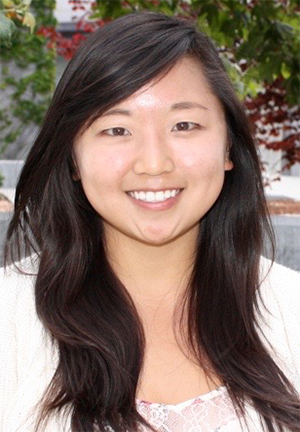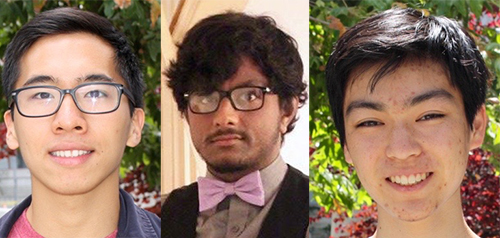PRIME Sends Undergraduates to Japan for Summer Cyberinfrastructure Research

San Diego, June 12, 2015 — Computer science undergraduate Michelle Wu is one of four UC San Diego students who will be spending the summer in Japan as part of the Pacific Rim Experiences for Undergraduates (PRIME) program. PRIME's internship program promotes undergraduate research experiences on projects related to cyberinfrastructure, and the program is based in the Qualcomm Institute.
Wu and three other students depart for Japan on June 20, where they will work with "host" mentors for 10 weeks while embedded in research organizations in Osaka or Nara. For Wu, who is going into her senior year, the host institution is Japan's National Institute of Information and Communications Technology (NICT) in Osaka, and her mentor is Dr. Jason Haga. Haga is a former postdoctoral fellow and project scientist in UC San Diego's Institute for Engineering in Medicine (IEM), but he left UC San Diego a year ago to be a senior researcher at NICT and Japan's National Institute of Advanced Industrial Science and Technology (AIST).
Using an EEG scanner and 200-inch glasses-free 3D HD display, both developed at NICT, Wu aims to investigate how linking up a person's emotions can be supported by a virtual-reality application running on the 3D HD display. Emotions are invisible entities, so the end-goal is to build an artistic dynamic virtual environment, complete with audio and visual components, representative of the user's emotional state. Accompanied by samples of music by Mozart, the environment will be comprised of particles appearing in gradients of colors and moving at fluctuating speeds dependent on the type of emotion detected. Further exploration will be conducted as to whether or not placing the user in an environment constructed from his or her emotions can have a therapeutic effect (for example, might it induce the user to cheer up when he or she becomes aware of feeling unhappy?). The capabilities of this visual application will depend on which emotions can be distinguished with the EEG scanner.

Wu will be joined at NICT in Osaka by Richard Hsiao, another PRIME student who is a senior majoring in Bioengineering. He will work on a browser-based disaster management application to run on SAGE2, a middleware that facilitates collaboration in shared display environments. The other two PRIME students will work at the Nara Institute of Science and Technology (NAIST) in Nara: Curtis Sera is a biochemistry/cell biology junior (with a minor in Japanese studies), and senior Nimish Pratha has dual majors in Physiology and Neuroscience.
Sera will be working on Hydra, a program created at NAIST to improve virtual, high-throughput biochemical screening of millions of compounds. Sera will add several features to improve Hydra's accepting of files, optimization of its molecular viewer, making it possible to save annotated lists of compounds scanned, and he will create an application programming interface (API) for Hydra. For his part, Pratha will use a structure-based virtual screening method deployed on the PRAGMA grid network via cloud-based virtual machines to search libraries of ligands in an effort to identify novel inhibitors -- and eventually contribute to advances in dealing with diabetes, hypercholesterolemia and other conditions.
Related Links
Pacific Rim Experiences for Undergraduates (PRIME)
Media Contacts
Doug Ramsey, (858) 822-5825, dramsey@ucsd.edu
